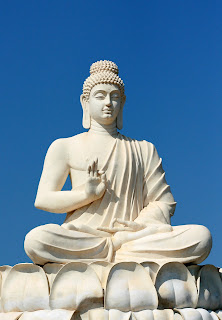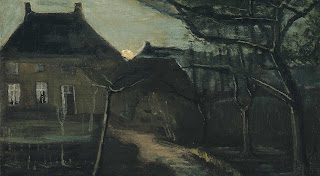Belief in
reincarnation, seeking for a purpose in life, formulating and pursuing an
intention, working with family constellations or identifying childhood damages
as causes of present behavior belong to the historical dimension and take away
our attention for the here-and-now. If we strictly apply the here-and-now
approach we have to give up such techniques. Although this may be quite scary
and difficult to handle, it can result in experiencing the inner void that
leads to enlightenment.
Moreover, we cannot change the past and self-victimization or the blaiming of parents work out negatively. We better focus on techniques that help dissolving emotions or tensions, of whatever origin, in the present.
On the other hand, if the here-and-now approach rejects historical cause-and-effect relations that are scientifically, emotionally or spiritually to be experienced or known, such rejection can lead to superficially focusing on symptoms and ignoring deeper lying causes. Causes do not always vanish by treatment of the symptoms. Morever, for some types of intelligence it works benificially to understand cause-and-effect. Thinking is not only a diversion from feeling but can speed up integrated growth.
Finally, the here-and-now approach bears the risk, though not necessarily intended by it, of derailed
neglecting practical affairs in the wider world and the near or further future.
Avoidance of both the here-and-now approach and the cause-and-effect approach can result from fear of feeling deeper pain. The core challenge remains to deal with this pain, be it through digging up and digesting subconscious childhood pain, verbally guided imaginations, intelligent explanation, the help of bodyworkers, or personally digesting the pain that manifests itself in dreams or in the body.












